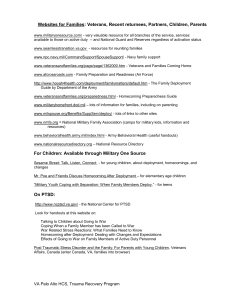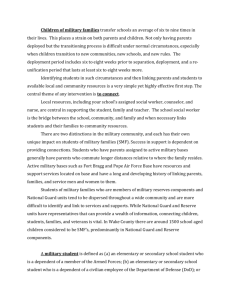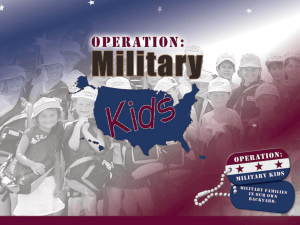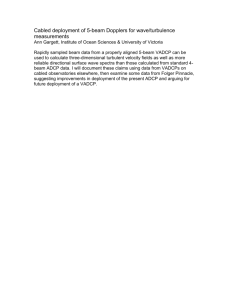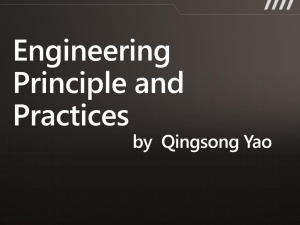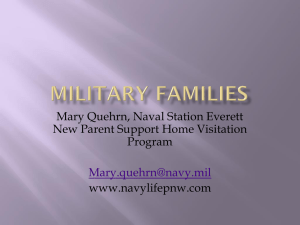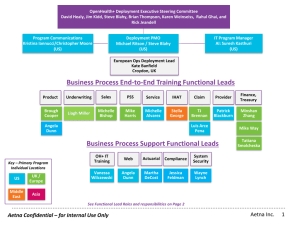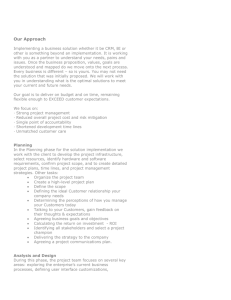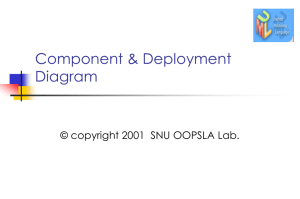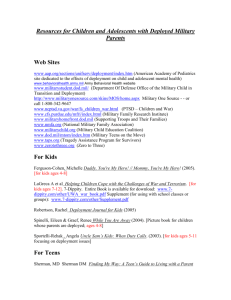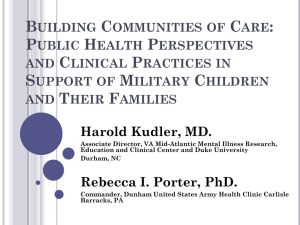Awareness to Action PowerPoint Show
advertisement
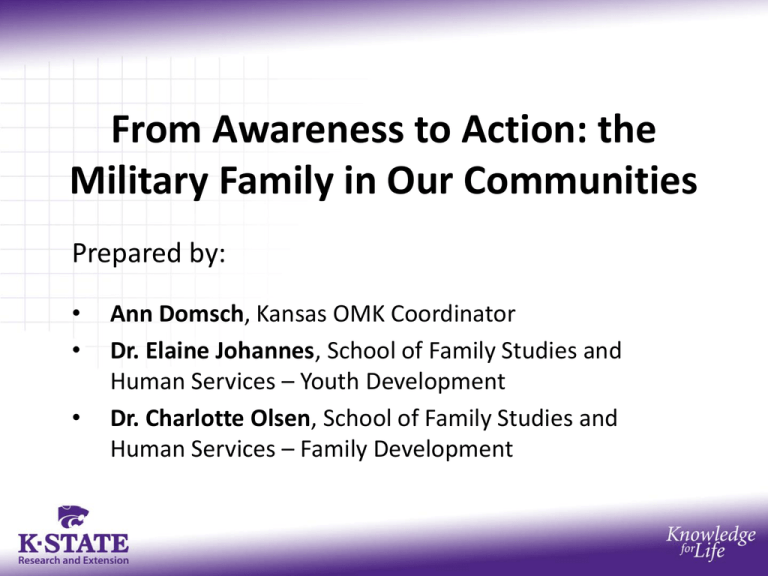
From Awareness to Action: the Military Family in Our Communities Prepared by: • • • Ann Domsch, Kansas OMK Coordinator Dr. Elaine Johannes, School of Family Studies and Human Services – Youth Development Dr. Charlotte Olsen, School of Family Studies and Human Services – Family Development After this session, we will. . . • Understand military family life and culture. • Understand how deployment and training cycles present challenges, reveal attributes and foster resilience among military families. • Identify supports and resources necessary for military families to thrive. • Commit to one tangible, sustainable act of support for families. 2 Who are Army Guard and Reserve Members and Families? • • • • • • 55% Married 48.3% Never Married Parents 7.3% Divorced .2% Other (widowed, annulled) 43.2% with Children 56.8% without Children www.militaryhomefront.dod.mil, 2010 www.defense.gov/home/features/2011/0111_initiative/strengthening_our_military_january_2011.pdf 3 Military Culture Culture is the knowledge, experience, values, ideals, attitudes, and symbols that are passed on from more experienced members of a community to new members. 4 What Prevents Families From Seeking Help? • Lack of community awareness. • Civilians are typically not prepared to recognize or meet the needs of military-families. • Civilians are unfamiliar with resources of help. • Deployments and trainings repeatedly disrupt families. • Families are often hesitant to ask for help. 5 Emotional Deployment Cycle of Military Families Seven Stages: 1. Anticipation of departure due to deployment or training 2. Detachment and withdrawal 3. Emotional disorganization, anxiety 4. Family recovers, stability 5. Anticipation of return 6. Adjustment and renegotiation of roles and routines at return 7. Reintegration and stability until the next deployment www.hooah4health.com 6 Military Families Want (need) . . . • • • • • To link with other military families Understanding, respect, compassion, empathy To spend time with their loved ones Understanding if they don’t want to talk Silent support (Ks. National Guard Youth Council, Feb. , 2011) 7 Communities Can: Foster Strong Families Communicate resiliency Focus on strengths more than criticize weaknesses Build circles of support around each family member Be appropriate; know when to “stand down”, and don’t give up! 8 Communities Can: Create Circles of Support 9 Communities Can: Support Reintegration • Seek to improve family communication, which enhances family connection (cohesion) and leads to individual and family adaptability (Olson, D., 2000) • If necessary, honestly acknowledge problems and challenges; offer to help seek options, solutions. How can our community build on the strengths of military families and culture to support reintegration? 10 Show support through Action. . . • • • • • • • Provide transportation Sponsor a support network Organize a day to help with yard work Do simple things that make a tangible difference Volunteer Listen I will ________________ 11 Learn More. . . • Military Homefront – www.militaryhomefront.dod.mil/ • OMK (Operation Military Kids) – • Military One Source – www.militaryonesource.com • Military Child Education Coalition – www.militarychild.org www.operationmilitarykids.org 12
